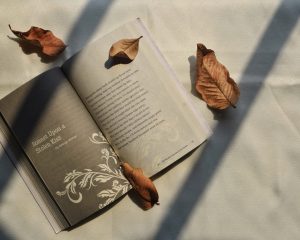Hello, my name is Holly Rance and I am a 4th year Creative Writing student attending UBCO. Throughout this blog I will be taking an in-depth look at Colonial and Indigenous narratives that have been presented throughout Canada’s history and that are still present this day. This blog is in correspondence with my Canadian Literature course, and in the spirit of my own learning process, I encourage my readers to question, discuss and challenge where they see fit.
As a writer I know that stories matter, and who tells those stories matters just as much. Whether fiction or non-fiction stories give us a snapshot of not only the writer but the readers as well. They can tell us what was important at the time, what was subversive, what was taboo. What were people rallying against, what were they falling in line with? What was mundane, what was thought to be fantastic? What was important enough that the author felt the need that it should be recorded, remembered, and shared?
If we were to look at the story of Canada and the “snapshots” represented in Canadian Literature, it would be easy to assume one homogenous clump of people obsessed with the prairies. An important part of our story is largely missing. A mere 31 years ago Canadian Literature released their “ground breaking” issue that featured Indigenous writers in the hopes of giving Indigenous voices and stories a platform to speak and the opportunity for their readership to view Indigenous Literature through the complex nuanced lens it deserves.
We still have such a long way to go to see the diverse tapestry of stories that make up our narrative as a country. Especially as our means of storytelling is continuously evolving. Turning to a more contemporary and local example, I came across an article from BC Business, in which they feature Kelowna animator Harley Knife. Working for Yeti Farm Knife explains his hope to see more Indigenous animators so that their stories can be told and shared.
I hope that throughout this course and blog we can grow and learn together to create a deeper understanding of the power that stories have, beyond the page and beyond the screen.

Works Cited
“An Introduction to Indigenous Literatures in Canada.” CanLit Guides, canlitguides.ca/canlit-guides-editorial-team/an-introduction-to-indigenous-literatures-in-canada/.
Hinton, Kevin, and Ryan Mckenzie. “Kelowna Animator Harley Knife Wants to See More Indigenous Representation in the Industry.” BCBusiness, 4 Jan. 2021, www.bcbusiness.ca/Kelowna-animator-Harley-Knife-wants-to-see-more-Indigenous-representation-in-the-industry?fbclid=IwAR1nslYslqI48rRypNX-zQBb5YRPoSXnjhVF1YVbUSRI_uvo0OJgKZN-IHw.
Hi Holly, pleasure to meet you!
As an English literature major, I share your deep love of stories. You are totally right to point out that a huge aspect of Canadian identity has thus far been excluded from the literary canon; I was shocked that the idea of including Indigenous voices in a Canadian literary journal could be considered ‘groundbreaking’ instead of being an expectation. I think this really speaks to the way that Canadian colonialism has become a part of the past that we choose to ignore instead of address, and the way that we pat ourselves on the back when we do acknowledge it. However, on a more positive note, it also shows that we have made some progress – it seems like today, there is more of an expectation of diversity to the point that it is no longer ‘groundbreaking’ to showcase many perspectives, and any homogeneity would come under criticism. Of course, as you point out, we still have a long way to go.
In this blog post, you also speak about how stories can serve as thermometers of a sort, letting us know what people were thinking and worrying about historically. I totally agree with you here, but I am curious to hear, from your writer’s perspective, where you see storytelling in terms of shaping our future. Can storytelling shape things to come, or is it always a snapshot of a time that has already passed?
Thank you so much for the provocative introductory post! I look forward to hearing more from you as the course progresses!
Victoria
Hello Holly,
Thank you for your introduction and the link to Harley Knife’s story – what an inspiring story, and what a please to meet you Holly. I enjoyed Victoria’s comment on your blog, and interestingly – at the conclusion of this course we will present on online conference that is in keep with Victoria’s question – what about the future? I hope you will enjoy the challenges and the rewards that English 372 offers and I very much look forward to working together. Erika
Hi Holly,
How refreshing to meet a Creative Writing student and hear their perspectives on stories! Thank you so much for sharing how important and powerful stories can be. I agree that there has been a big gap within Canadian literature to both 1)properly tell and recognize the story of Indigenous communities and 2)listen and share their stories as well. In this course, I also hope that we can grow a deeper understanding and appreciation of the importance of stories as well as the retelling of them and the value of actively listening to these personal histories.
Can’t wait to have further conversations together!
Best,
Amanda L